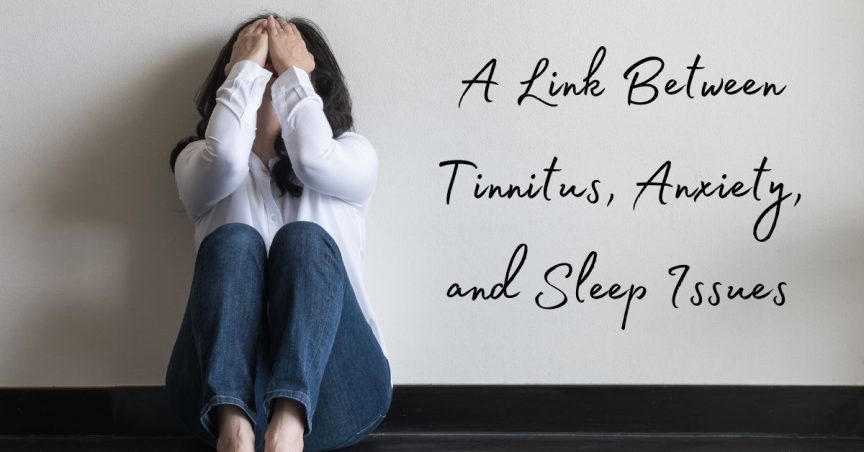- The Emotional Journey of Accepting Hearing Loss - October 25, 2024
- Making a Style Statement with Hearing Aids This Fall - October 15, 2024
- Fireplace Safety and Hearing aids - October 4, 2024
Do you ever hear buzzing or ringing in your ear that seems to be coming from your own head? This is commonly referred to by tinnitus and is often related to damage in the inner ear. Tinnitus is fairly common in the U.S with the Centers for Disease Control estimating nearly 15% of the general public or over 50 million Americans dealing with some form. Approximately 20 million people struggle with tinnitus so extreme that it can cause major disruptions in the quality of life. For many this sound can come and go but for those with unrelenting tinnitus, symptoms can cause concentration problems, triggering anxiety and insomnia.
How can tinnitus trigger anxiety?
Our days are filled with sound and often we look forward to peace and quiet at days end. When people suffer from tinnitus they struggle with achieving this peace. They search for silence only to be met with buzzing, whooshing or ringing that cannot be escaped. Tinnitus is caused when hairs in the inner ear, responsible for sending sound waves to the inner ear become damaged. This can cause the damaged hairs to send feedback to the brain manifesting as the sound of tinnitus.
When we experience anxiety, our fight or flight systems become activated putting pressure on the nerves and increasing body heat and blood flow. This elevated level of blood flow can travel to the inner ear causing a heightened experience of tinnitus. This can also manifest at the height of an anxiety attack and can create a vicious cycle. Anxiety can cause tinnitus and tinnitus can cause heightened levels of anxiety
Tinnitus and Insomnia
When we settle down to sleep, the calmer we can be, the more prepared we are to sleep soundly. When tinnitus presents itself as we prepare for rest, it can trigger anxiety leading to interrupted sleep or insomnia. For people with tinnitus, silence can be a moment for the ringing to take over, rather than drifting into slumber. Over time this can escalate into exhaustion during the day, concentration problems at work and mental distress. Over a period of time, these issues can even escalate to depression and chronic fatigue.
How to Treat Your Tinnitus
While there is no cure for tinnitus it can be treated in several ways to reduce or relieve the symptoms:
- Cognitive Behavioral Therapy: It is not the tinnitus, which causes anxiety and sleep issues, but your brain’s response to the symptoms. This type of talking therapy also known as CBT, teaches the patient to focus and change the emotional response to tinnitus. Guided by a therapist, patients are taught to accept tinnitus and deescalate the emotions, which amplify it.
- Yoga and Meditation: Similar to CBT, yoga and meditation can calm the mind and allow it to focus on remaining calm. Often the exercise and stretching of yoga or meditation can lower blood pressure and help relieve anxiety, which can make tinnitus worse.
- Acupuncture: Acupuncture is a type of Eastern Medicine, which uses needles inserted in the body at different points in the skin pores to relieve different ailments. Many researches have found acupuncture effective for treating and relieving the loudness and severity of tinnitus.
- Masking or Sound therapy: One of the most effective ways to treat tinnitus is by creating other less distracting sounds which can cover the sound of tinnitus in the mind. Many use ambient or white noise machines to create a blanket of sound. There are hearing aids, which now have masking features built in. This can help keep you focused at home and at work. The calmer you stay during the day, the better you will rest at night.
Have Your Hearing Checked
Tinnitus is caused by damage to the inner ear, which also causes hearing loss. If you have tinnitus then there is a good chance that your hearing is declining. It is important to deal with hearing loss before it can progress to inducing communication issues and higher levels of stress. Often hearing aids can reduce tinnitus symptoms with noise canceling technology and by simply improving hearing ability.
If you are dealing with tinnitus and you are looking for long-term solutions, contact us to set up a hearing test. We can help you explore your options and help you find relief for tinnitus and hearing loss.

